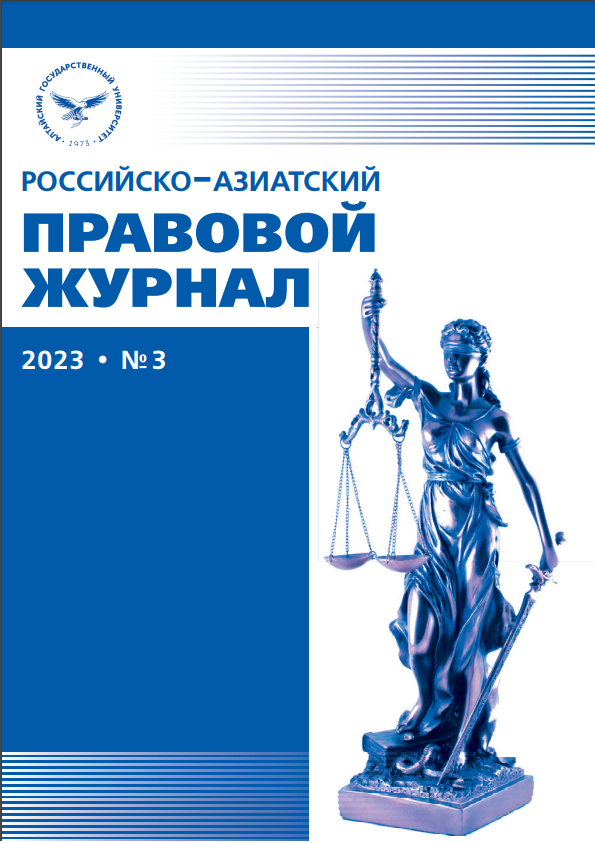LEGAL EDUCATION: CHALLENGES OF THE NEW TIME AND WAYS OF RESPONSE
УДК 34 ББК 67
Abstract
Legal education often faces practical problems and fails to properly protect the rights of students,teachers and the state. The purpose of the article is to find the most effective ways to develop legal educationin Russia, an attempt is made to generalize the practice of universities on the discipline of students and theformation of their personality. The methodological basis of the article was a combination of dialectical andsystemic research methods, as well as a teleological approach, according to which the student's personalityrequires formation. The author's position is argued regarding the appropriate location of the studentin the hierarchical system of educational relations, provided that the forms of behavior that ensure therecognition of knowledge by the elders and the transmission of the moral law are preserved. The articlemakes suggestions for further study of this problem and improvement of certain provisions of the legislation,allowing to eliminate the gaps in legal regulation. The author comes to the conclusion that the state shouldworry about state educational institutions, professional educational standards, logistics, and on the otherhand, students should meet and support the state initiative on their part.
Downloads
References
Абасов З.А. Актуальные проблемы обновления современной системы образования // Человек и образование. 2012. №4 (33). С. 4–9.
Астафичев П.А. Конституционализация принципа уважения к старшим: опыт конституционных поправок 2020 г., их содержание и проблемы реализации // Сравнительное конституционное обозрение. 2021. №2. С. 180–191.
Елкина К.К., Иванова В.А., Петрова Е.А. Уважительное отношение студентов к прародителям // Столыпинский вестник. 2023. №2. С. 681–689.
Камышанов В. Качественное образование — одна из 17 целей устойчивого развития ООН // ЭТНОДИАЛОГИ. 2016. №1 (50). С. 27–35.
Russian-Asian Law Journal is a golden publisher, as we allow self-archiving, but most importantly we are fully transparent about your rights.
Authors may present and discuss their findings ahead of publication: at scientific conferences, on preprint servers, in public databases, and in blogs, wikis, tweets, and other informal communication channels.
Russian-Asian Law Journal allows authors to deposit manuscripts (currently under review or those for intended submission) in non-commercial, pre-print servers such as ArXiv.
Authors who publish with this journal agree to the following terms:
- Authors retain copyright and grant the journal right of first publication with the work simultaneously licensed under a Creative Commons Attribution License that allows others to share the work with an acknowledgement of the work's authorship and initial publication in this journal.
- Authors are able to enter into separate, additional contractual arrangements for the non-exclusive distribution of the journal's published version of the work (e.g., post it to an institutional repository or publish it in a book), with an acknowledgement of its initial publication in this journal.
- Authors are permitted and encouraged to post their work online (e.g., in institutional repositories or on their website) prior to and during the submission process, as it can lead to productive exchanges, as well as earlier and greater citation of published work (See The Effect of Open Access).








